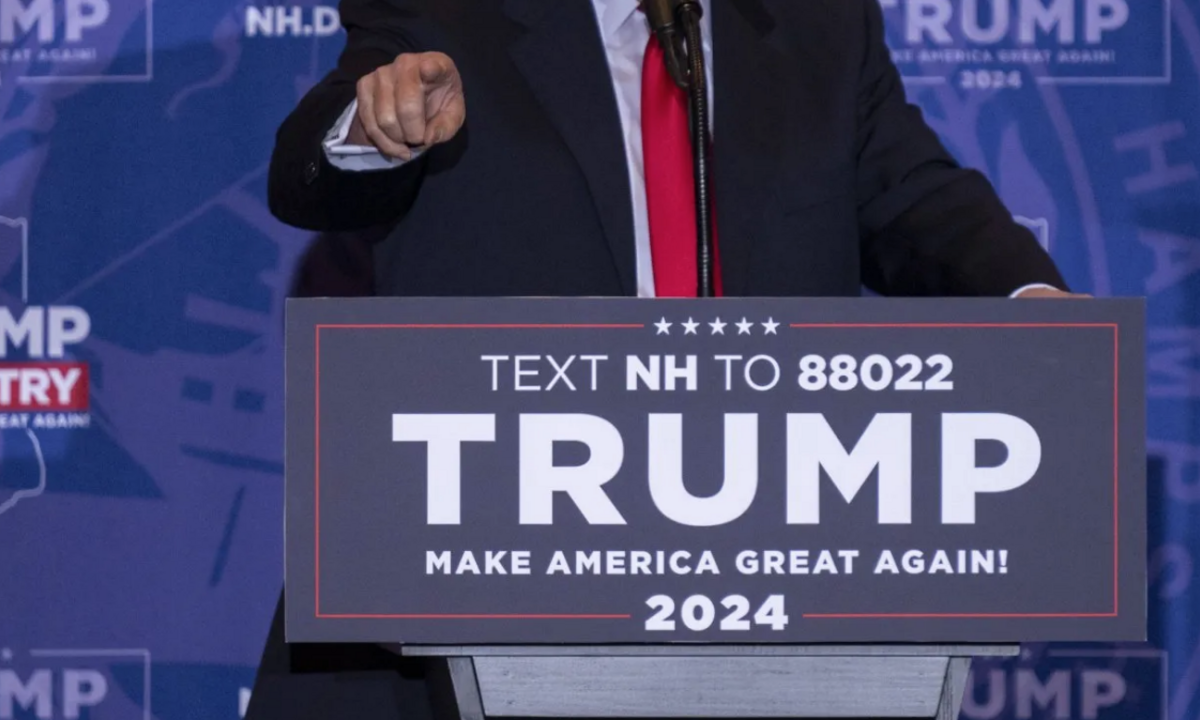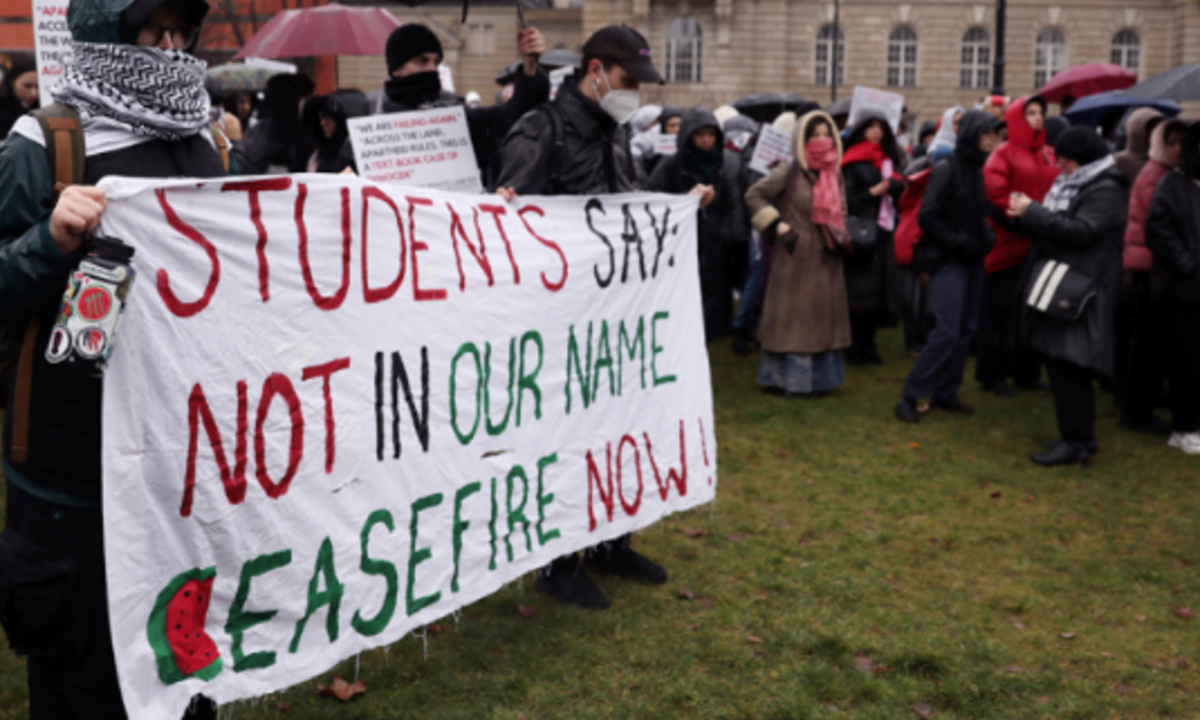Spotlight Elections: What's next America?
The ‘FES Spotlight Elections’ is a series that presents short opinion pieces on social and economic policy topics that are playing a role in the debates and campaigns leading up to the U.S. Presidential elections of 2016. By presenting views from authors from the African American and Latino communities, from female authors, labor representatives and young people, as well as members of the LGBTQ community, from religious groups, and the working poor, the series aims to offer a voice to segments of the U.S. population and shed light on policy issues that do not get adequate coverage in the mainstream media.
When Barack Obama gave the speech that made him famous at the 2004 Democratic National Convention – and doesn’t that seem like a lifetime ago – it wasn’t just America that noticed. The words he spoke, the sentiment he expressed provided hope for the world: “Tonight, we gather to affirm the greatness of our nation not because of the height of our skyscrapers, or the power of our military, or the size of our economy; our pride is based on a very simple premise, summed up in a declaration made over 200 years ago: ‘We hold these truths to be self-evident, that all men are created equal…’”
Obama’s campaign for president, with the message of “Hope and Change,” was felt not only in the US but was truly international. In Germany in 2008, Obama closed a main thoroughfare when he appeared. The French president all but endorsed him.
It was also what Barack Obama, who would become the first African-American U.S. President, represented. Obama was and is a man of the world. In his example and election, not once but twice, America set an example to aspire to, a country stumbling to find its better self – eventually. In travels, other countries marveled, and had to ask – with an obvious answer -- if a member of a discriminated minority closer to home could rise so far.
What a difference eight years make.
The term “post-racial” was invented to describe the Obama era. Had not a country that elected an African American moved past America’s triumphant and troubled history? But few who took a clear-eyed view of U.S. history ever placed such expectations on one man, even one named Barack Hussein Obama who improbably ascended to the highest office in the land and arguably the most visible in the world.
America is not, as many would characterize it, a great country that has at times done terrible things. It is a country where inequalities are baked into the soil, a country of contradictions, where Washington, D.C., government buildings, seats of power, were built with slave labor and museums such as the National Museum of the American Indian fill in the blanks of history not taught.
It has been a struggle always for the human beings who inhabit it to live up to the words of the Declaration of Independence and the Constitution.
Obama was a partial fulfillment of America’s promise, but his presence alone could not erase systemic problems of discrimination that have been long in the making – in education, housing, schools and the criminal justice system.
In a recent speech in Dallas that closely resembled a sermon, Obama tried to bring together a nation after a week when these divisions exploded. He honored five Dallas police officers shot and killed by a man Obama had called “demented,” and the killings of two African American men in interactions with law enforcement under investigation and caught in part on video.
In Dallas, Obama walked a tightrope, preaching unity and “one American family.” The day after, describing an hours-long White House forum on building trust between police and the communities they serve, which included activists and law enforcement and community representatives, he said: “There are cultural issues, and there are issues of race in this country, and poverty, and a whole range of problems that will not be solved overnight. But what we can do is to set up the kinds of respectful conversations that we've had here -- not just in Washington, but around the country -- so that we institutionalize a process of continually getting better, and holding ourselves accountable, and holding ourselves responsible for getting better.”
All this is happening in the midst of a 2016 election season that presents Americans with clear choices in the presidential candidates for the two major political parties.
When Democrat Hillary Clinton spoke before black clergy members in Philadelphia, she urged white Americans to “do a better job of listening when African-Americans talk.” And speaking in Springfield, Ill., in a place heavy with symbolism, where Abraham Lincoln once warned of “a house divided,” she spoke of the divisive rhetoric of her opponent, the 2016 presumptive nominee of the party of Lincoln.
Republican Donald Trump started his campaign warning of the dangers of immigration and promising to build a wall at the Mexico-U.S. border that Mexico would pay for, and has proposed a ban on Muslim immigrants. In the wake of the Dallas shooting, and the earlier deaths of African Americans that launched protests and marches across the country, Trump declared himself the “law and order candidate,” echoing the words of Richard Nixon in the 1968 presidential campaign at another divisive time in the country's history.
As changing demographics are transforming America into a country that is more diverse, anxiety among some whites who don’t recognize their country has risen to the surface, said a New York Times report.
How these developments will affect the election to replace the man both celebrated and reviled as a harbinger of that change won’t be definitely known until November, with polls changing every week. Add voting restrictions and ID bills passed in states across the country and being argued in the court, and the uncertainty increases.
What is known is that turnout is key, especially in swing states such as North Carolina, where President Obama appeared with Clinton, bringing his charisma and rising approval numbers to the campaign trail, and drawing thousands, particularly the African American women crucial to her success.
Trump, buoyed by some polls that show his fortunes rising in the wake of questions on Clinton’s email server, promises a convention with entertainment value – who would expect less from the businessman/showman.
Listening and watching in 2016, in a much more somber mood than in 2008, will be not only those in the U.S. but also a worldwide audience, wrestling with political uncertainty and many of the same divisive issues.
In an interconnected world, both leaders and everyday citizens are trying to be optimistic about the great American experience and wondering – with urgency – what comes next?
Mary C. Curtis is a columnist at Roll Call and already contributed to NBC, The Washington Post “She the People” blog, The Root, NPR, Women’s Media Center, MSNBC, and talks politics on WCCB-TV in Charlotte, N.C. Her coverage specialty is the intersection of politics, culture and race.
The views expressed in this publication are not necessarily those of the Friedrich-Ebert-Stiftung or of the organization for which the author works.
Friedrich-Ebert-Stiftung
USA and Canada
WASHINGTON, DC
fesdc[at]fesdc.org
OTTAWA, ON
canada[at]fesdc.org






